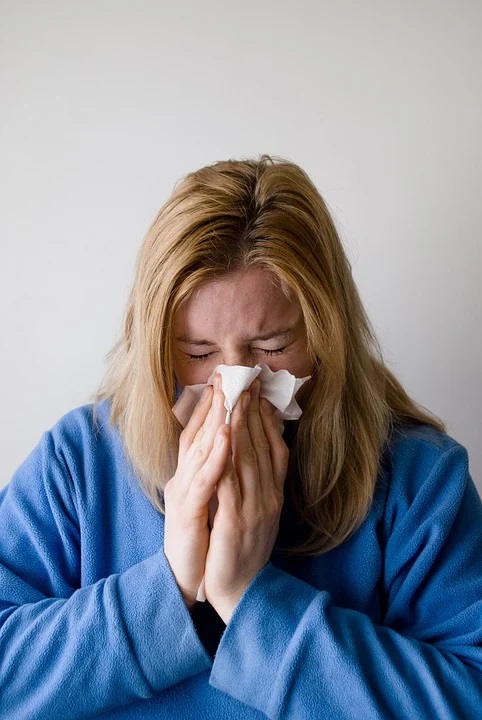Most of the best options to ensure you avoid getting a cold are just common sense.
Eat green, leafy vegetables
A balanced diet and a healthy immune system can be maintained by the rich vitamins that are to be found in green, leafy vegetables.
A study of mice has suggested that the consumption of cruciferous vegetables results in the body being sent a chemical signal that boosts the cell-surface proteins that are specifically required for the efficient function of the immune system. The study revealed that between 70 to 80% of cell-surface proteins were lost by otherwise healthy mice who were not allowed to eat green, leafy vegetables.
Avoiding close contact
Avoiding close contact with those who are sick with a cold is common sense advice. If you are suffering from a cold, you should also take care to stay away from other people to avoid infecting them. If you can, you should avoid going to work or school or going out to run errands when sick and just stay home to prevent the infection of others.
Get plenty of sleep
The need to get enough sleep is even more critical for anyone who has been exposed to a virus. According to one study, healthy adults who got eight hours of sleep every night for two weeks were more likely to stave off the infection than those who did not. In extended sleep periods, the body releases cytokines, a form of protein that helps fight infection by helping to regulate the immune system.
Clean your hands regularly
Washing your hands regularly can help to prevent infection with cold and flu germs. If you do not have access to soap or water, then you should make use of an alcohol-based hand rub. You should always wash your hands before preparing or eating any food, or before you insert your contact lenses.
Making use of the best hand sanitizer you can find is also an excellent idea, with some of the best options on the market being offered by CBD Luxe. Hand sanitizers can kill flu germs in as little as eight seconds, making it essential to use the product regularly, particularly during the cold and flu season.
Get plenty of Vitamin C
While the jury is still out as to how effective Vitamin C is at cutting down the length of time that you will have to endure an illness once you already have it, according to a 2006 study, it could assist the immune system in staving off cold and flu.
Avoid touching your eyes, mouth, and nose
One of the common ways in which the germs that cause cold and flu are spread is when someone touches something that has the bugs on it and then touches their eyes, mouth, and nose. Avoid touching things as much as possible, especially when outside of your own home.
Keep personal items separate
If you live with other people, then just one person getting sick will often infect the entire household, given that the flu virus can survive for up to a full day on surfaces. Personal items should thus be kept separate to prevent the sharing of germs. The items include toothbrushes, utensils, towels, and drinking glasses.
Contaminated items, particularly toys that may be shared by different children, should be washed in hot, soapy water.
If one member of the household falls sick, it may be a good idea to use disposable towels, utensils and drinking cups for the duration of their illness
Maintain good health habits
Several basic good health habits should be rigorously maintained during the cold and flu season. Surfaces in the home or workplace that are frequently touched should be regularly cleaned and disinfected, particularly when someone there is sick.
Maintaining physical activity, eating nutritious food, drinking lots of fluid, and engaging in stress management are all vital health tips to keep a healthy immune system at any time of the year.
Get a shot
The single best thing you can do to avoid getting the flu is to get a flu shot. As well as reducing the likelihood that you will fall ill, it is also a fact that the more people within a community that are vaccinated against the flu, the less likely it is that a severe outbreak will occur.
Keep warm and dry
Although staying warm and dry cannot prevent virus infection, it can cut down on the chances of developing symptoms such as sneezing and coughing. Cold results in the narrowing of blood vessels within the nose and reduced blood flow makes multiplying easier for cold and viruses.
